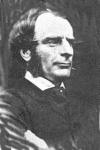Biography
Charles Kingsley, the son of a vicar of Holne in Devon, was born in 1819. Educated at King's College, London, and Magdalene College, Cambridge, he became curate of Eversley in Hampshire in 1842.
As a young man, Kingsley was influenced by The Kingdom of Christ (1838) by Frederick Denison Maurice. In the book Maurice argued that politics and religion are inseparable and that the church should be involved in addressing social questions. Maurice's book rejected individualism, with its competition and selfishness, and suggested a socialist alternative to the economic principles of laissez faire.
Kingsley became a supporter of Chartism and after the decision by the House of Commons to reject the Chartist Petition in 1848, he joined with Frederick Denison Maurice and Thomas Hughes to form the Christian Socialist movement. The men discussed how the Church could help to prevent revolution by tackling what they considered were the reasonable grievances of the working class.
The Christian Socialists published two journals, Politics of the People (1848-1849) and The Christian Socialist (1850-51). Kingsley contributed several articles for this journals under the pseudonym of Parson Lot. The group also produced a series of pamphlets under the title Tracts on Christian Socialism. Other initiatives included a night school in Little Ormond Yard and helping to form eight Working Men's Associations.
In 1850 Kingsley novel Alton Locke was published. The book attempted to expose the social injustice suffered by agricultural labourers and workers in the clothing trade. In Alton Locke Kingsley also describes the Chartist campaign that he was involved with in the 1840s.
Kingsley followed Alton Locke with the historical novel, Hypatia (1853). Based on the real-life story of Hypatia, a philosophy teacher in 5th century Alexandria, who was murdered by a group of fanatical Christians because they disapproved of her political and religious ideas. In 1857 Kingsley published Two Years Ago, a novel about how poor sanitary conditions and public apathy cause an outbreak of cholera.
In 1863 Kingsley published his most famous book, The Water Babies. The book, written for his youngest son, tells the story of a young chimney-sweep, who runs away from his brutal employer. In his flight he falls into a river and is transformed into a water baby. Thereafter, in the river and in the seas, he meets all sorts of creatures and learns a series of moral lessons.
Kingsley, who held the post of Professor of Modern History at Cambridge University between 1860-69, also wrote Westward Ho! (1855), The Heroes (1856), Hereward the Wake (1866) and At Last (1871). Charles Kingsley died in 1875.






